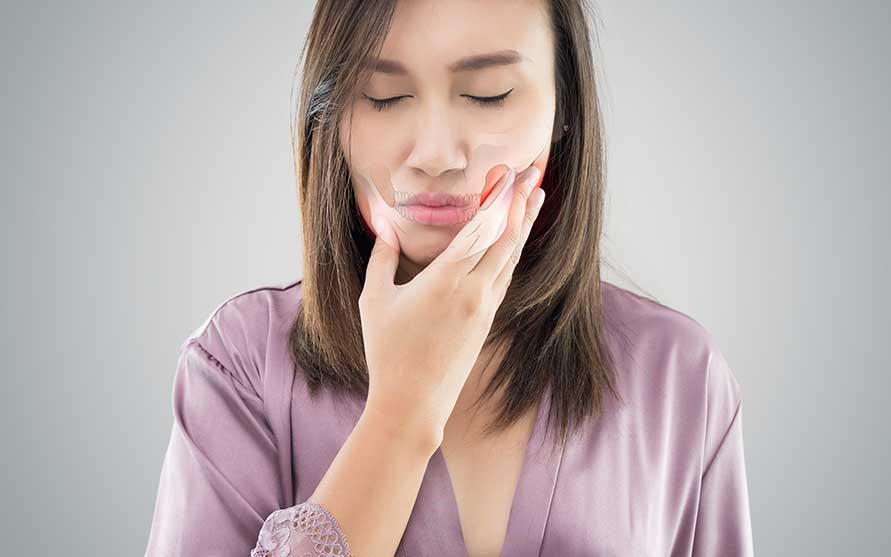When it comes to oral health, the first thing many think of would probably be healthy teeth and healthy gums. However, many tend to forget that the jaw is also critically important to our oral and overall health. Temporomandibular disorders (TMD) and jaw issues can affect anyone, and it is important that one seek professional help as soon as possible to get relief and restore normal function.
What is TMD?
Temporomandibular disorders (TMD) are joint disorders that are associated with the jaw. The temporomandibular joint (TMJ) is located in front of the ear, on both sides of the head. It serves as a hinge and is the joint that connects our jaw to the temporal bones located in front of each ear to your skull. This joint becomes active when we engage in mouth activities such as chewing or yawning. TMD can cause pain and loss of normal function to the temporomandibular joint (TMJ) or jaw joint. This disorder is more common in women than men and, typically, people aged between 20 to 40 years old.
Causes of TMD
TMD disorders can be caused by a variety of reasons. Experts believe that TMJ disorders are caused by prolonged stress to the jaw joint or trauma, such as a blow, to the lower jaw or face, directly or indirectly. It may also be caused by arthritis, inflammation of the joint, which is a degenerative process that may be due to aging. Other possible causes can be due to excessive grinding or clenching of the teeth or severe tension of the facial muscles. Because of the vast list of potential causes, it is important that you pay attention to the way your jaw feels and functions so that an expert can better determine the best course of action.
Symptoms of TMD
Some of the symptoms of TMD include pain and/or tenderness in your jaw or face, swelling in the face, or difficulty when chewing due to misaligned jaws. You may also experience an inability to open your mouth wide at times or the feeling that your jaw is stuck in either the open or closed position. There may also be sounds of clicking, popping, or cracking when you move your jaw. If you experience any of the above mentioned symptoms, do seek professional help, such as from an Orofacial pain Specialist, as soon as you can. An Orofacial Pain Specialist can provide a diagnosis by reviewing your medical and dental history, as well as conducting an exam after obtaining X-rays of the head and neck, to recommend the best treatment option. You may also be required to obtain an MRI if the X-ray is unable to offer definitive information.
Treatment for TMD
As a start for minor cases, the Specialist may suggest simple remedies to see if they can provide any form of jaw relief. You may be asked to take anti-inflammatory, over-the-counter drugs like Ibuprofen along with using a hot or cold compress to temporarily relieve any pain or swelling associated with a TMJ disorder. Try to avoid any stressful jaw movements, such as clenching or grinding, to relieve tension.
If these simple remedies do not work, you may be prescribed an oral appliance, such as a custom-fitted splint, to guard your teeth and jaw joint from harmful grinding and clenching when you are sleeping. Your Specialist may also use trigger point injections to temporarily relieve pain in your jaw and relax the muscles and joints. Additionally, injections directly in the temporomandibular joint to provide better lubrication can provide relief. The steps described above are attempts to avoid surgery but for more severe cases it may be the best treatment.




